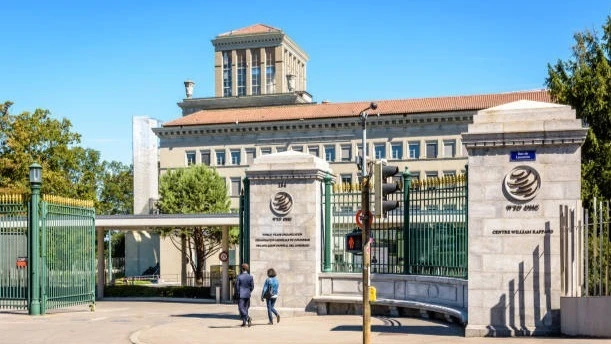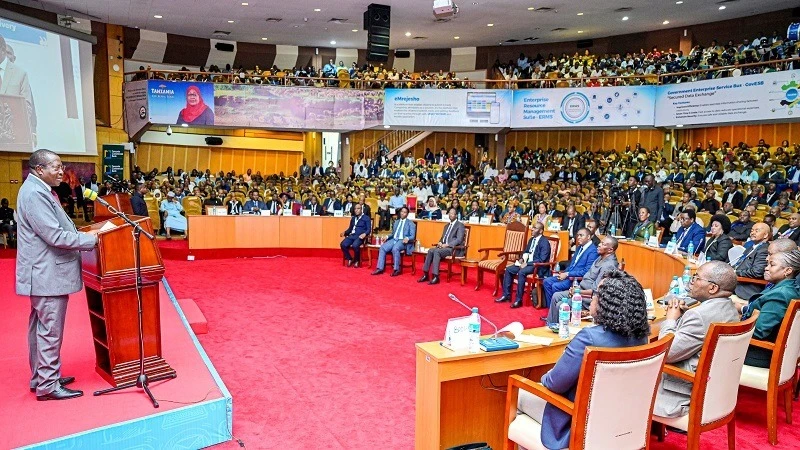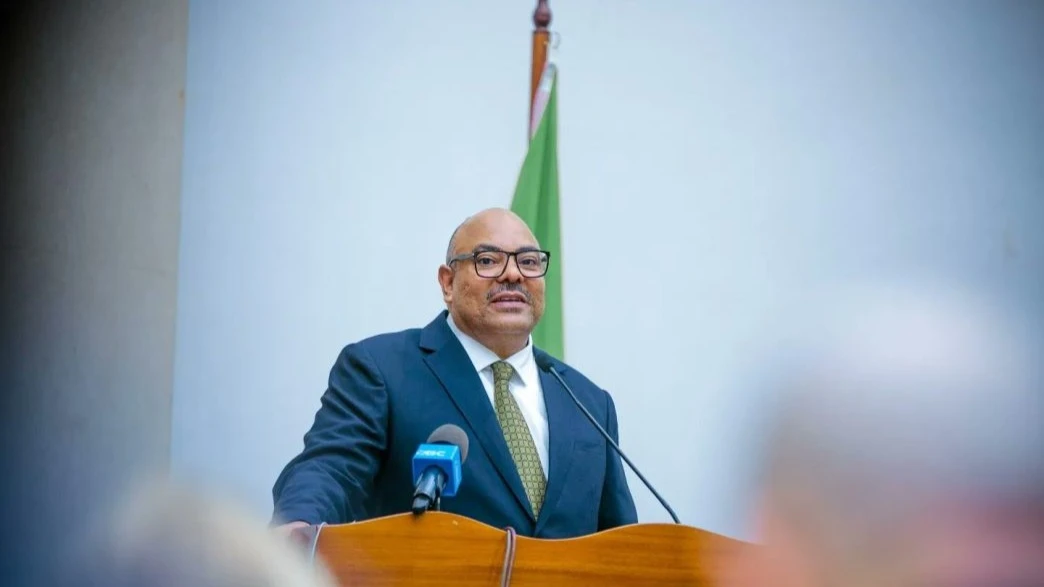Africa to start learning as industrial renewal replaces export orientation

A brave new world is opening up where consensus about everything, as built on the ashes of World War II, gives way to old national preference. Yet it isn’t just a return to the past but holds the potential to be a new type of globalization, where capital will be freely exported around the world, but not goods. This is in sum the new paradigm of economic policy in the United States, which holds potential for a minimum of inflationary pressure but is applicable.
The country visibly targeted is China, though others will to an extent find themselves touched by the shift to localized industry, as reports say that there are many industries in Africa championed by China, with intent to export to major foreign markets. What seems to be the case is that rules of origin will be applied somewhat more stringently, unless it is a product that doesn’t come under any list of US preferences. This could eventually be taken up by European Union member states, to prefer their own firms exporting there.
This outlook is by no means entirely new though it was by and large unexpected, and it stems from a large diminution of industries in advanced economies, exporting to developing countries. The result is rising unemployment even if the majority benefit from the lower prices of goods which come in with minimal tariffs under ‘most favoured nation’ statutes of the World Trade Organisation (WTO). It is this piece of legislation that the new US authorities wish it is removed as regards China, whose export prowess is being resisted around the world; the new Trump administration is leading the way.
To be sure, there has always been higher tariffs for goods which a country can produce or has plenty of its own, but there are various multilateral arrangements where the taxation is minimal. It is expected that the country will reciprocally remove tariffs for goods of the other country, but quite often conditions are such that goods from high wage countries are uncompetitive in lower wage countries, like selling US goods to China. That leads to sharp trade imbalances, leading to long term indebtedness that is being resisted.
The issue is where Africa stands in this disputation, whether its current orientation is resilient enough in the face of the new pressures, and how other issues like a sharp diminution of bilateral aid and definitely multilateral assistance can be absorbed by its current orientation. All this is at the moment a matter for speculation as trends will open up in the next few months, to see how far the new US authorities will keep the country’s position in the United Nations framework. A telling sign is the precipitous withdrawal from the World Health Organisation (WHO), with which President Trump has an axe to grind on Covid-19 advisories.
Tanzania has definitely some need to think of implications of the current developments, for instance the large industrial park that is now in the offing in Kibaha. The target of the project is processing of goods for which Africa has trade pacts with the European Union as well as the United States for preferential trade, and definitely not those targeted for higher tariffs to uplift manufacturing capacity use in the US, especially. With the far right movements that object to immigration being elected to office in one country after another in the European Union, it is a matter of time for the new US import restrictions or selective tariffs are applied there in similar ways.
What is somewhat discouraging is that Africa has been fairly slow to learn export orientation, finding it rather difficult to extend overly agreeable conditions for foreign firms to come in. From the early 2000s to the present, special processing zones admit foreign firms having sufficient amounts of capital to start putting up industrial outlays, not allow them to purchase land and used it to obtain loans enabling bigger projects and lower capital transfer risks.
Thus Africa is yet to use the benefits of global export orientation as favourable terms of trade where goods from foreign countries are charged almost as if they were locally produced. Even as current revisiting of such policies leave the sphere where Africa exports more, that is agro-processing intact, some of the export-oriented capital flows we could expect will start diminishing. Even in agro-processing many firms will start producing in the US and elsewhere, with promises of 15 percent corporate tax if a firm produces there.
With export orientation losing its allure, even the continental open market vision is going to be trimmed in its scope, ass it was to an extent a governance issue rather than strict economic policy. Much of the bilateral assistance had some conditionality attached to it, for instance rationalizing markets by simplifying licensing in setting up firms, obtaining export licenses, etc. There might be less of pressure to follow this path and instead increase pressure on land purchasing so that companies can set foot in a country even if they lack capital.
This will in a sense be a tactic to obtain ‘most favourable nation’ status, or if it is applied selectively to goods or companies, like in the case of Tanzania’s avocado penetration into the Indian market. The point is that to export into a country that can also select other exporters, it is helpful if the firm exporting the product is one of theirs, or at least holds shares in the company producing those goods. The idea that any company sets up shop and can sell its goods anywhere in the world is getting out of fashion, as it leads to unequal trading - if some countries hugely export low priced goods.
There are hence chances that African countries come under pressure to open their asset markets to foreign investors, as in that case they will be part of profit seeking engagements with the US or any other advanced country. Refusal to open up stock markets and company shares to foreign buyers led to sharp differences between the US and China during the first Trump administration, and measures taken at that time were largely retained by the subsequent policy makers. Now they are being intensified along with aid cuts, etc, implying that the basics of global economy are changing a bit fast.
Top Headlines
© 2025 IPPMEDIA.COM. ALL RIGHTS RESERVED

























